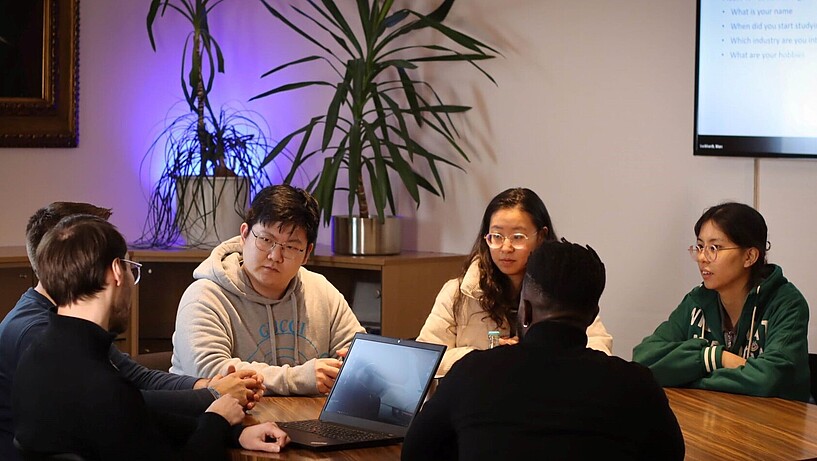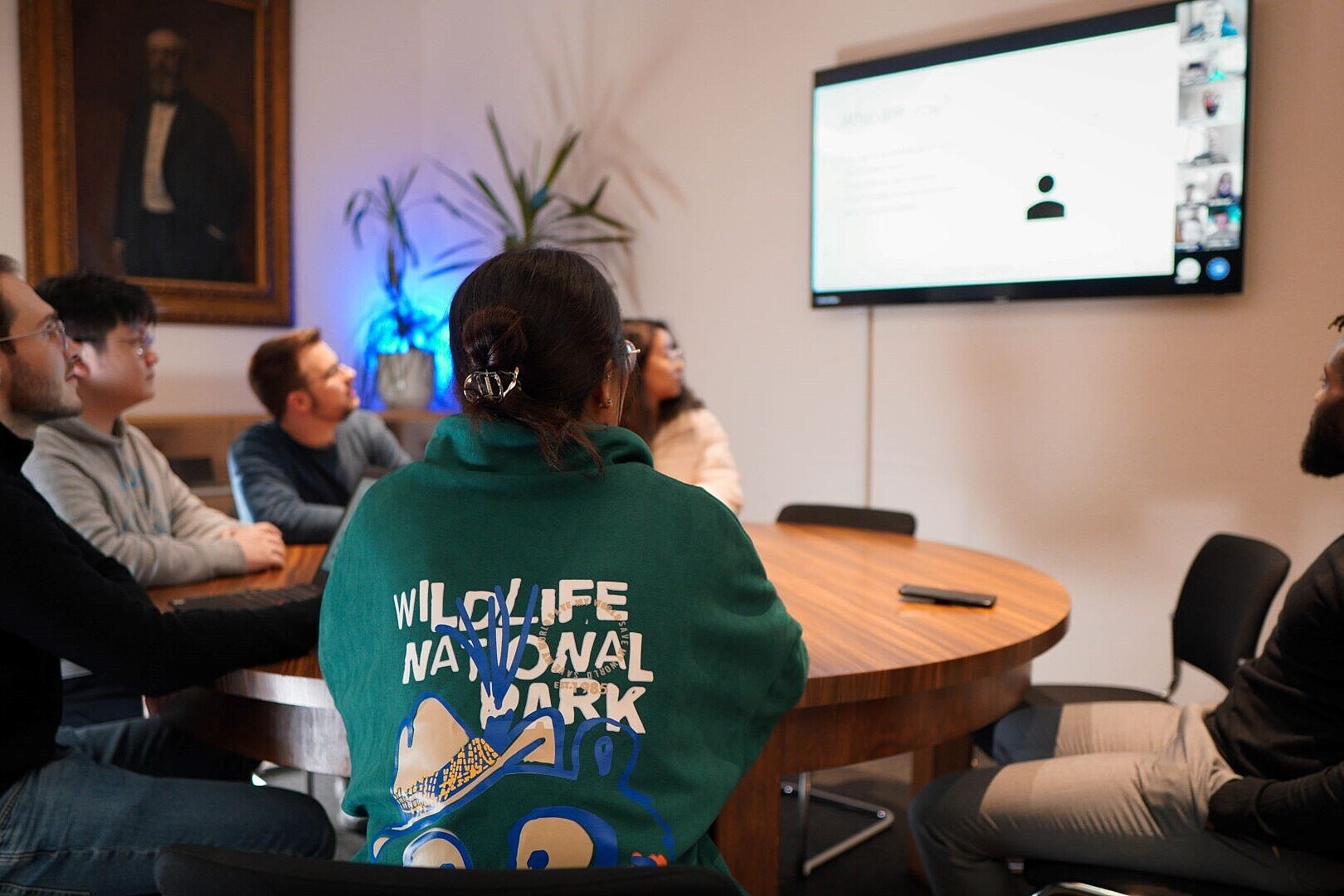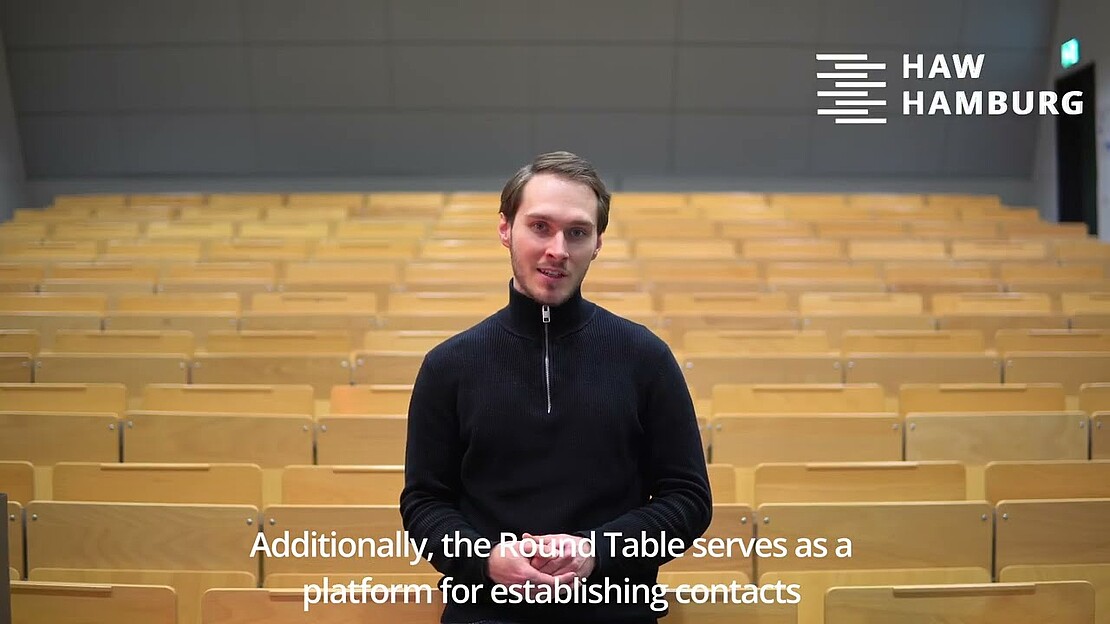The newly launched German Chinese Roundtable came off to a great start when multiple Chinese and German students met for the first time on the 1st of December via the platform Teams to get to know each other. A clear vision on the goal of connecting students from the USST Shanghai and the HAW Hamburg for the long run set the tone for the relaxed and friendly atmosphere.
Connecting Cultures: From networks to shortcuts

It is a Chinese family tradition to get together at a round table to share meals
The history of the Shanghai-Hamburg College is not a young one, as it celebrated its 25 years of partnership in 2023, with the main goal to create international relationships and enable students to easily build intercultural networks to benefit from, not only personally, but also professionally – now and in the future. “It will build a network at first. And after time, the network can grow into "shortcuts" ("let me just call someone", "I know someone regarding this topic".) And after more time and personally meeting together, also in long-term-relationships, the people will connect individually”, explains Prof. Dr.-Ing. Henner Gärtner the advantages of this intercultural exchange. The students involved in the partner program can ask for recommendations, support, and guidance from students as well as alumni at the other university. Other interested students can also just connect to get in touch over personal or professional interests and extend their intercultural competences at the same time.
The event and the organization around it were realized by students from the course “Project Management and Communications” held by Prof. Dr. Gärtner at the department mechanical engineering and production from the HAW Hamburg. All the participating German students as well as their Chinese counterparts have a technical background. The roundtable was held in English, although the Chinese students learn to speak German at the USST Shanghai and are highly motivated to improve their skills in interaction with native speakers.
After a look into the vision of the roundtable, the group was guided by the hosts to introduce themselves one by one. While doing so, everyone found some similarities and differences between each other: How do we spend our free time, what are our interests in the field of study? The students soon realized that especially for those in the double degree program, the connections that can be formed will help them to navigate through life on the different campuses. Additionally other German and Chinese students looked back at their time in Shanghai or Hamburg and shared experiences on topics like internships, culture shocks and travelling. Plans were not only made for the long-term communication, but also for organizing a dinner once the next Chinese students arrive next semester.
I’m looking forward to being part of this event. Certainly it will help to create long-term-relationships between students at the HAW Hamburg and the USST Shanghai.
A closing event from the PJMK course will be held on the 15th of January in 2024 at 12:15 pm via Teams as well as in presence in room 424. The students will be talking through all the puzzle pieces of bringing this project together. This includes the project vision, a short video-round-up of the first round table, information about German-Chinese professional ties and the presentation of the long-term concept for the round table. The project will be financially supported by the “Deutscher Akademischer Austauschdienst” (DAAD). Everyone who is interested in receiving an overview and participating is very welcome and can bring their own topics to connect in the future .The next roundtable-event will be held on the 7th of May. To take part, please write an E-Mail to Prof. Gärtner.
(Text: Antje Weddingfeld, Jonathan Schaaf, Anno Schwarz)
Why a roundtable?
It's a Chinese tradition to sit at a round table, especially with the family. This way, everyone can talk to each other, and shared food can be reached by everyone. Additionally, the Chinese word for "unity" sounds similar to "round" or "circle" and puts further emphasize on the culture of „together” that we also want to foster in this event series.
Contact
Prof. Dr. Henner Gärtner
Department Maschinenbau und Produktion
Berliner Tor 21
20099 Hamburg
Raum 211
M +4917675522211
henner.gaertner (at) haw-hamburg (dot) de


